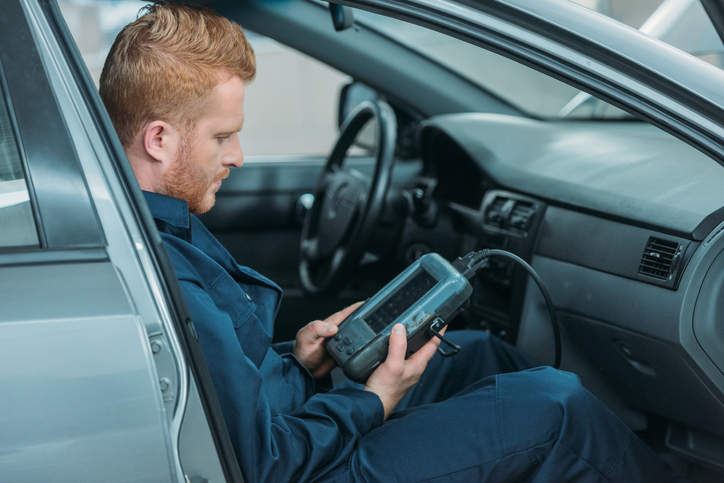Students in Auto Service Technician Training Should Look for These Qualities in an Automotive Scanner

The auto diagnostic scanner, also commonly referred to as OBD2 scanner, has been on the market for the last several years, appealing to car owners and professional mechanics alike for its ability to take a reading of all kinds of automotive diagnostics. Pretty well every car designed since the late 90s comes equipped with a port for accommodating this highly useful tool.
Some OBD2 scanners are more budget-friendly and generalized in their capabilities, designed to appeal to the average car owner. Other scanners come equipped with much more extensive and detailed diagnostic capabilities, clearly designed with serious DIYers and pro mechanics in mind. And yet many of these higher-quality models often come with consumer-level price tags, as technology continues to evolve.
To learn more about the types of scanners out there, and which features to look out for in the best of them, let’s take a closer look!
What’s the Difference Between Basic and High-Quality Scanners?
Both basic and professional-level quality OBD2 scanners are designed to diagnose and clear error codes, ultimately to find out what’s wrong with a vehicle so appropriate solutions or repairs can be identified.
Generally speaking, basic OBD2 scanners are simply able to read and reset the scanner code—and that’s all. Higher quality OBD2 scanners, on the other hand, come equipped with a much greater range of capabilities bound to be of interest to students of automotive service technician training. Among the vast range of functions, some typical capabilities include:
- Live data
- ECU info
- ABS/SRS Service
- Oil Reset Service
- Active test
- Adaptation
- TPMS Programming Service
With more than 5,000 possible codes that can appear on a scanner, and 60% of those having a generic application to all vehicles, higher quality OBD2 scanners also offer the advantage of reading from the many thousands of individualized manufacturer codes. Additionally, pro-quality scanners offer much wider make and model coverage than basic models.

What Are the Two Types of Scanners?
As a student in auto technician courses, you’ll need to know of the two types of OBD2 scanners. The first of them is a dedicated, handheld device, equipped with a screen, software, and computer chip, as well as a cable to plug the device into the vehicle’s OBD2 port. There are very basic types of this OBD2 reader, as well as superior professional-quality models of the design with price tags reaching into the thousands of dollars.
The second type of OBD2 scanner is known as the Bluetooth dongle. Designed to plug into the OBD2 port, this type of scanner connects with the user’s smartphone or tablet, making use of Bluetooth technology. Bluetooth models offer a lower cost option to the dedicated scanner, connecting with the user’s own smart device, already equipped with the screen and computing capabilities that are otherwise built into self-contained, handheld units. Among other varied aspects depending on the model, it’s the screen, computer, and other such components that can jack up the price of the dedicated scanner.
Which Scanner Type Would be the Likely Choice for Students of Auto Technician Courses?
While the Bluetooth option might sound appealing for its lower cost and practicality considerations, there are a few disadvantages to this design. For one, the functioning of these models depends upon the strength of the Bluetooth connection where they’re being used. The user must also consider the charge on their phone, as well as the Wi-Fi and data capability of their smart device. Incoming calls and ads that play on the control Apps that connect with the dongle can interrupt a code reading.

For these reasons, it’s safe to say that most pros will use a high quality, dedicated self-contained OBD2 scanner in the shop as a much more efficient, reliable tool for taking the many quick readings so often needed on the job throughout the workday.
Are you interested in training with specialized automotive courses in Canada, designed to prepare you for an exciting career in the industry?
Contact Automotive Training Centres for more information!

